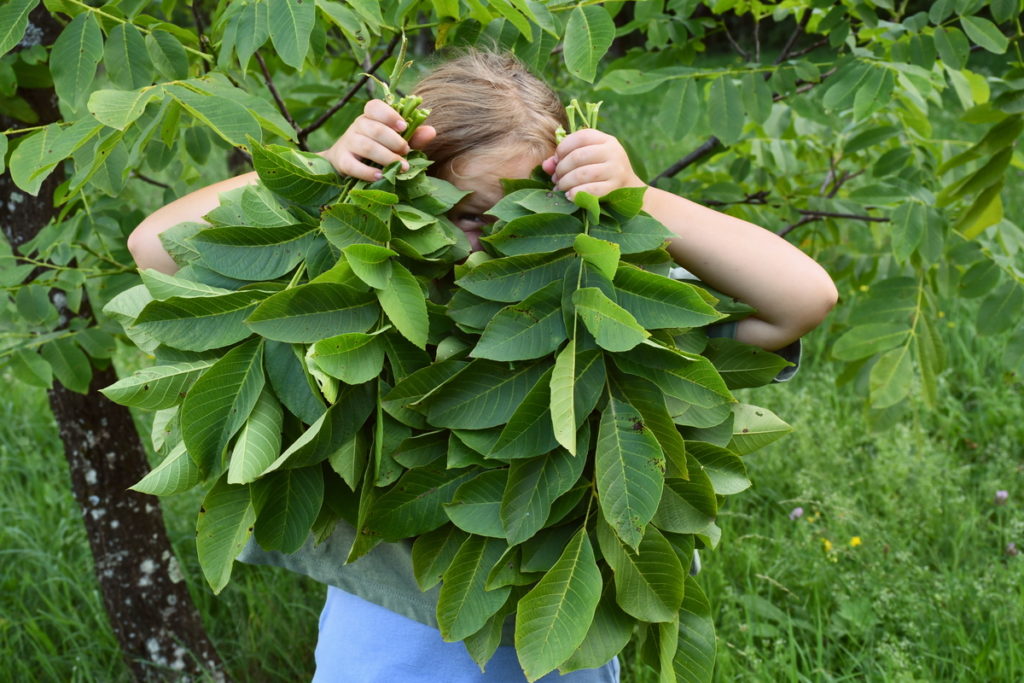

Whether or not or not or not or not we’re talking about leaves out of your gracious English walnut, or black walnut leaves, gardeners are inclined to tense up. “Not in my yard!”, they’re saying.
There are fears about nothing rising beneath the timber, regarding the leaves killing their yard when used as mulch, or that the leaves are poisonous themselves. Elements are incessantly scarier when you end up at midnight.
No matter all that, people wish to eat walnuts.
In muffins, cookies, pie crusts and lovingly tossed into do-it-yourself granola bars.
On excessive of that, walnuts are simple to reap, dry and retailer. In our non-public experience, the first two years after harvest are best for up to date consuming. All via the third yr, walnuts are nonetheless good for baking and cooking with.
Then they go rancid all via the 4th yr of storage. Eat them sooner than they lose their nutty mannequin and delicious, up to date fat.
After your wintery-walnut meals cravings are put apart, you is possibly as quickly as further to the question of “What’s the difficulty with rising a walnut tree in my yard?”
What’s So Unhealthy About Walnut Bushes?
It’s common knowledge that black walnuts and absolutely fully totally different members of the walnut family (Juglandaceae) produce an pure compound often typically often known as juglone. Nature wouldn’t have it each fully totally different methodology. Even nonetheless, evidently it’s maybe a delusion that walnuts produce juglone.
As laborious as we attempt, we nonetheless don’t have the whole selections.
What’s for sure, is that walnuts do have allelopathic qualities. Which signifies that they produce constructive chemical substances that make life further sturdy for diverse crops rising beneath, or shut by.
It is possibly unsuitable to say that walnut timber by themselves are killers.
The reality is, walnut timber can very merely be built-in into your orchard, forest yard or landscaped yard.
The juglone that each walnut tree produces by way of roots, leaves, buds and nuts, won’t be going to be so excessive to interrupt the enlargement of some frequent yard veggies each.
Greens proof in route of juglone embody:
- beans
- beets
- carrots
- corn
- melons
- onions
- parsnips
- squashes
When talking about companion planting, walnuts may even income from the corporate of plenty of wildflowers and herbs. An entire lot of which might perform in your hedgerow.
To hunt out out additional about what chances are you’ll plant near walnuts, this textual content material materials from Penn State is extermely helpful: Landscaping and Gardening Spherical Walnuts and Completely fully totally different Juglone Producing Vegetation
Set your worries about walnut leaves aside for a second. Let’s take a look at what you are able to do with them, ought to you already have walnut timber in your property.
What’s So Good About Walnut Leaves?
You would be shocked to hunt out out that you just merely haven’t been using walnut leaves to their full potential.
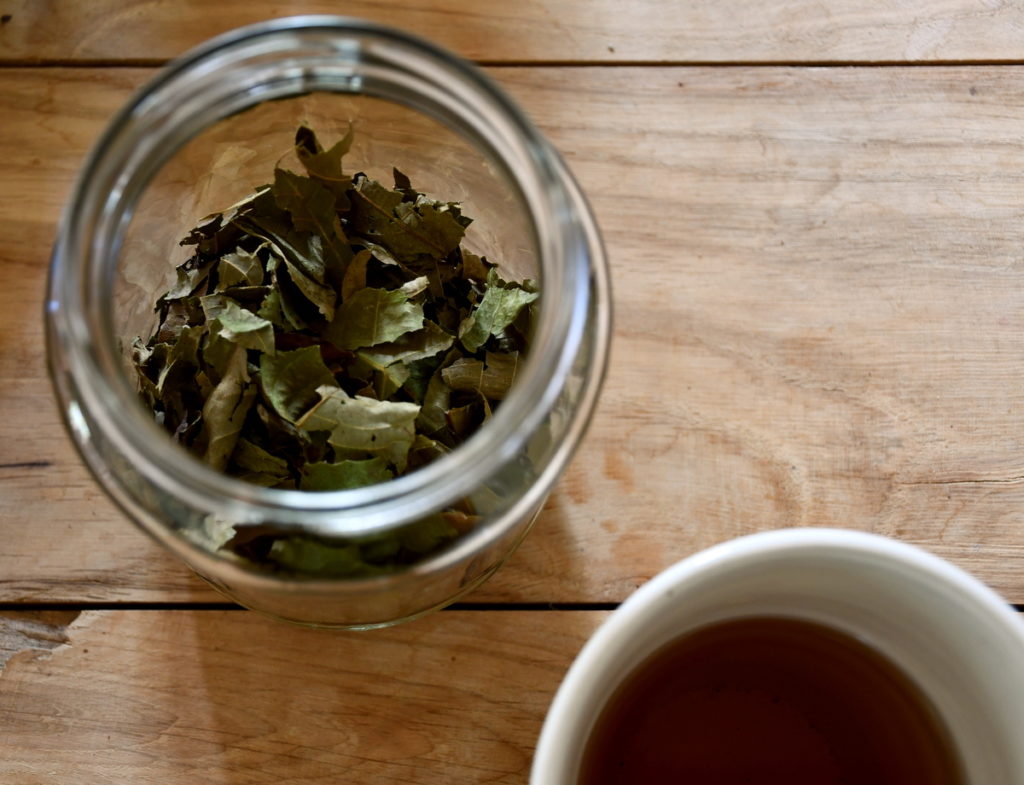
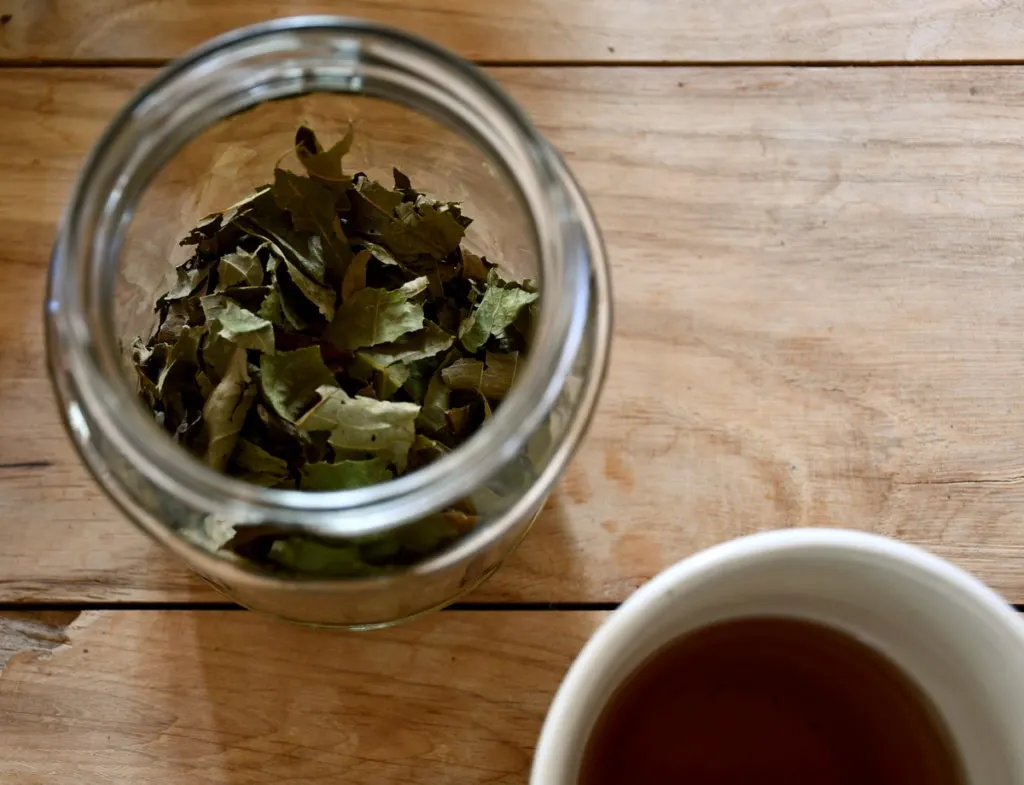
Walnut leaves may be utilized in teas, tinctures, hair rinses and constructive, they might even be composted.
All elements thought-about, you’ll usually want to be using the leaves of English walnuts (Juglans regia) comparatively than these of black walnuts (Juglans nigra) for lots of the strategies listed beneath. Nonetheless, many circumstances black walnut leaves may be utilized interchangeably with stronger outcomes.
1. Walnut Leaf Tea
Walnut leaves are significantly useful in pure therapeutic on account of they’ve every anti-bacterial and anti-parasitic properties.
These benefits can also be extracted by boiling the leaves in water, contained within the type of a tea or an infusion to rinse the hair and physique.
Whereas the nuts of the English walnut promote a healthful gut, are a rich current of Omega-3s and promote a healthful concepts carry out, the leaves do one difficulty a bit absolutely absolutely fully totally different.
Walnut leaf tea is used internally for treating:
- diabetes
- diarrhea
- hemorroids
- gout
- blood impurities
- perspiration
- anemia
- intestinal parasites
As an astringent and antiseptic it permits for therapeutic all via the whole physique – constructive, topically as accurately.
To make a delicious cup of black walnut tea…
Start with 2 tablespoons of dry walnut leaves per quart/liter of water.
I want to convey this to a boil, letting it simmer for about 5 minutes.
Take away from the heat and let it sit beneath a lid for about 10 minutes.
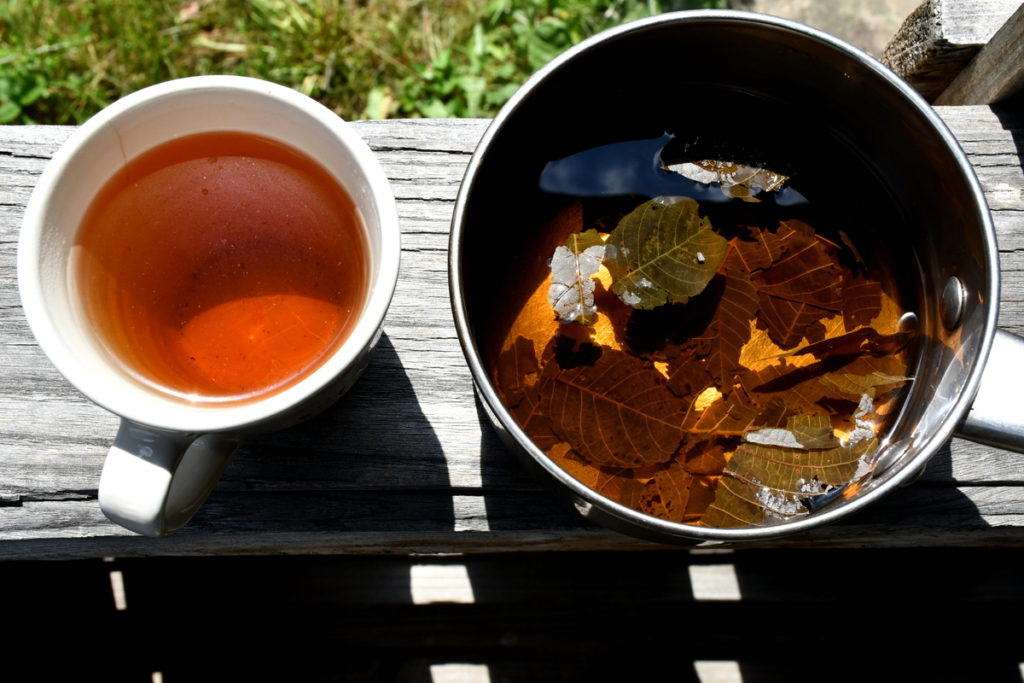
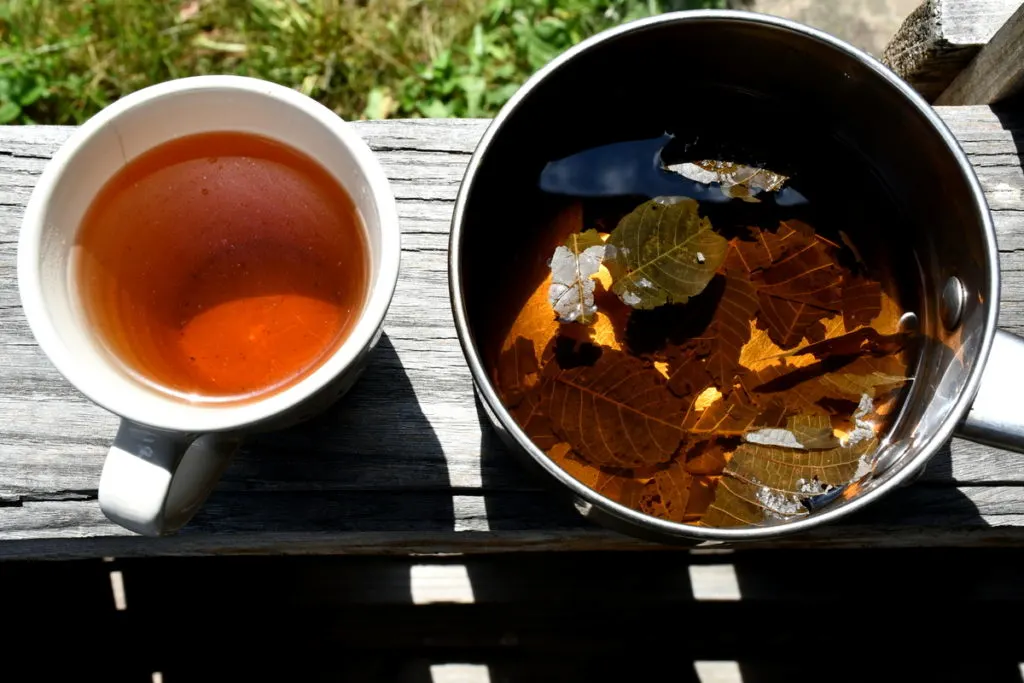
Stress and drink whereas it’s warmth – or serve it chilly with ice cubes. Should you occur to’ve under no circumstances tried it sooner than the flavour will be uncommon at first. Protect ingesting (no more than 2 to a few cups a day) and likewise you’ll uncover that you just merely do income from the mannequin in any case.
Walnut leaf makes for a pleasant pure tea which will be sipped everytime you actually really actually really feel the need for it.
It is contraindicated in case you’re delicate to tannins.
2. Walnut Leaf Tincture
We reside in a time the place meals is ample and digestive elements won’t be going to be uncommon. Someplace there is a connection between the two.
Drawback all via the effective high quality of meals, pure vs. typical, components, preservatives, sweeteners, meals colorings and presumably some not-so-clean water; and likewise you is maybe in for an sudden shock.
If the thought-about intestinal worms offers you shivers, you aren’t alone. It happens quite a few want to take into accounts, in animals and in folks too. You almost certainly can eat the whole raw garlic and pumpkin seeds you need, nonetheless an additional sip of walnut leaf tincture gained’t harm your gut each.
The reality is, it will help it.
Not solely with eliminating parasites, nonetheless along with serving to you to get better sooner from a typical chilly or the flu.
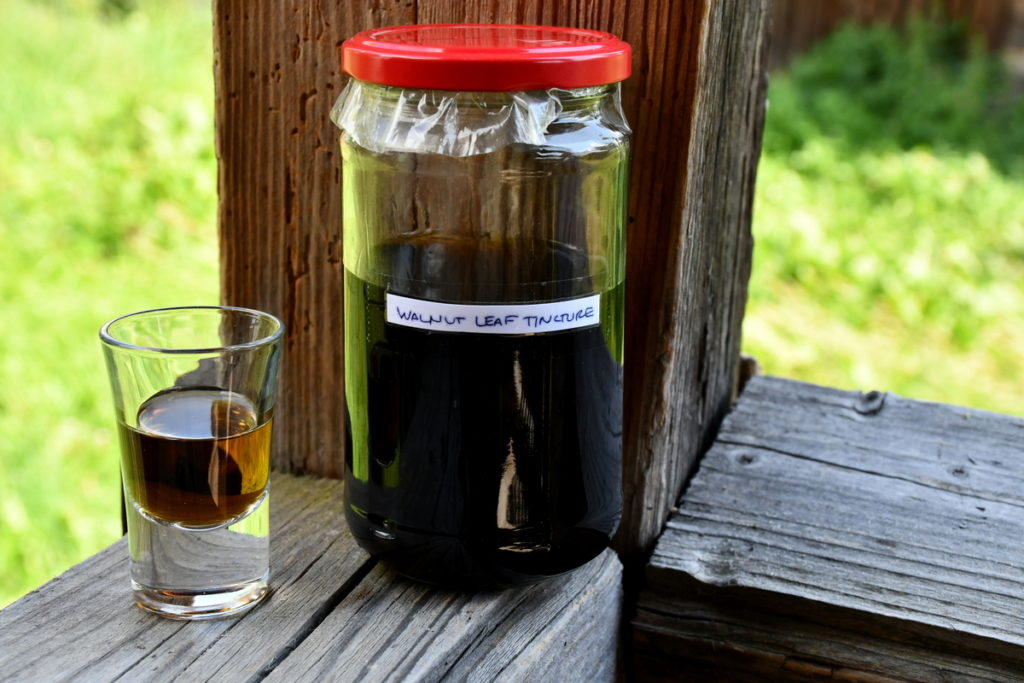
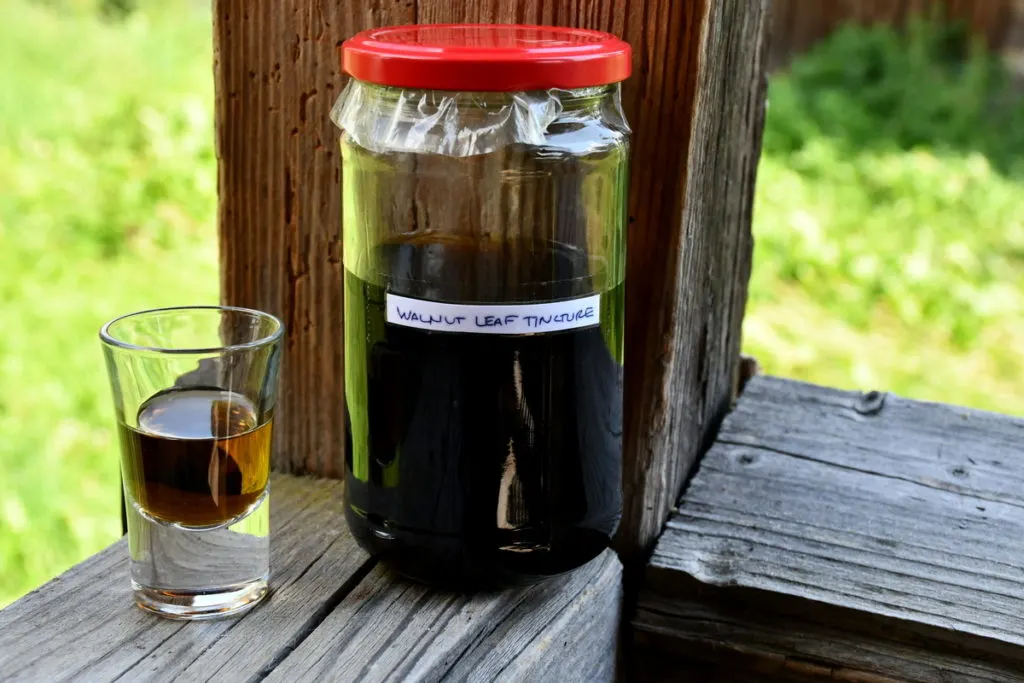
Easy strategies to Make a Walnut Leaf Tincture
Purchase and dry a bunch of walnut leaves, letting them dangle for only a few week.
Stuff them full in a wide-mouth jar, add ample alcohol to cowl and let it sit in a darkish place for 4-6 weeks.
Stress the leaves and retailer the tincture in a darkish, glass bottle. Use accordingly, and as wished. 15-20 drops a day may be ample for most people.
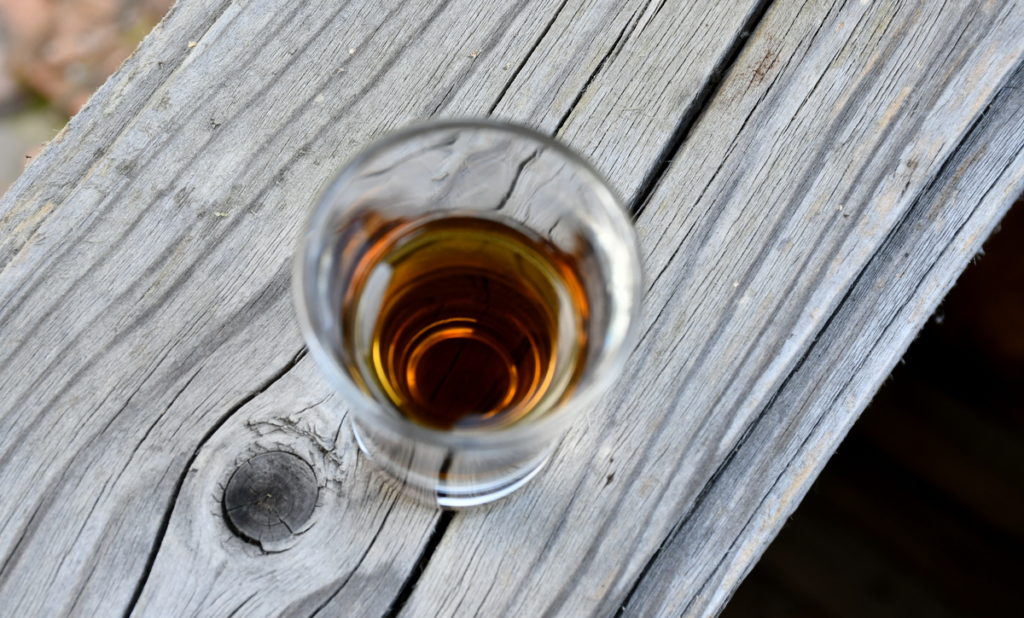
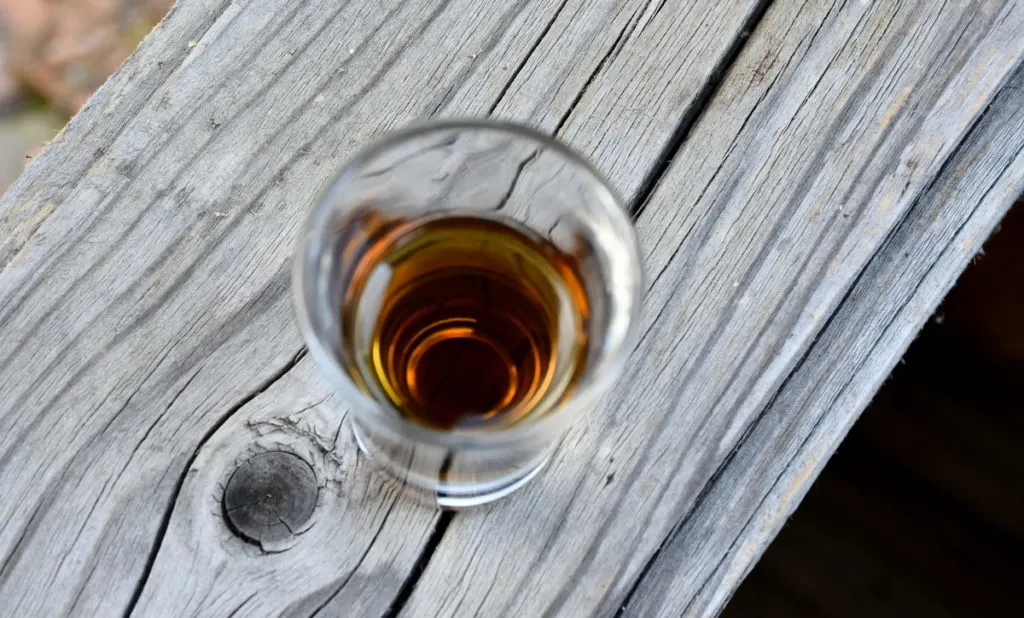
Not solely is walnut leaf tincture good for cleansing your digestive tract, nonetheless it’d moreover help your tooth and gums as accurately.
It’s attainable chances are you’ll make a black walnut tincture using the hulls of English or black walnuts too.
Black Walnut Liquor
I do know, it isn’t a tincture and it makes use of the inexperienced (unripe) black walnuts, so technically it doesn’t match into a listing about makes use of of walnut leaves. Nonetheless, this explicit recipe is worth mentioning on account of it is so distinctive.
Nocino is an Italian-style black walnut liquor that is just like Unicum or Jägermeister in coloration, nonetheless the flavour is earlier ponder.
Better of all, in case you’re into foraging and concocting your particular particular person categorical alcoholic drinks (like limoncello), it ticks every packing containers.
Soar to the Nocino recipe right correct proper right here.
3. Hair Rinse of Walnut Leaves
Preparations of walnut leaves have extreme parts of astringent tannins which tighten the tissues of the pores and pores and pores and pores and skin.
This makes it helpful in treating constructive pores and pores and pores and pores and skin circumstances equal to eczema, zits, psoriasis and dandruff.
It’s moreover talked about to supply low value from sunburn and excessive sweating of the arms and toes.
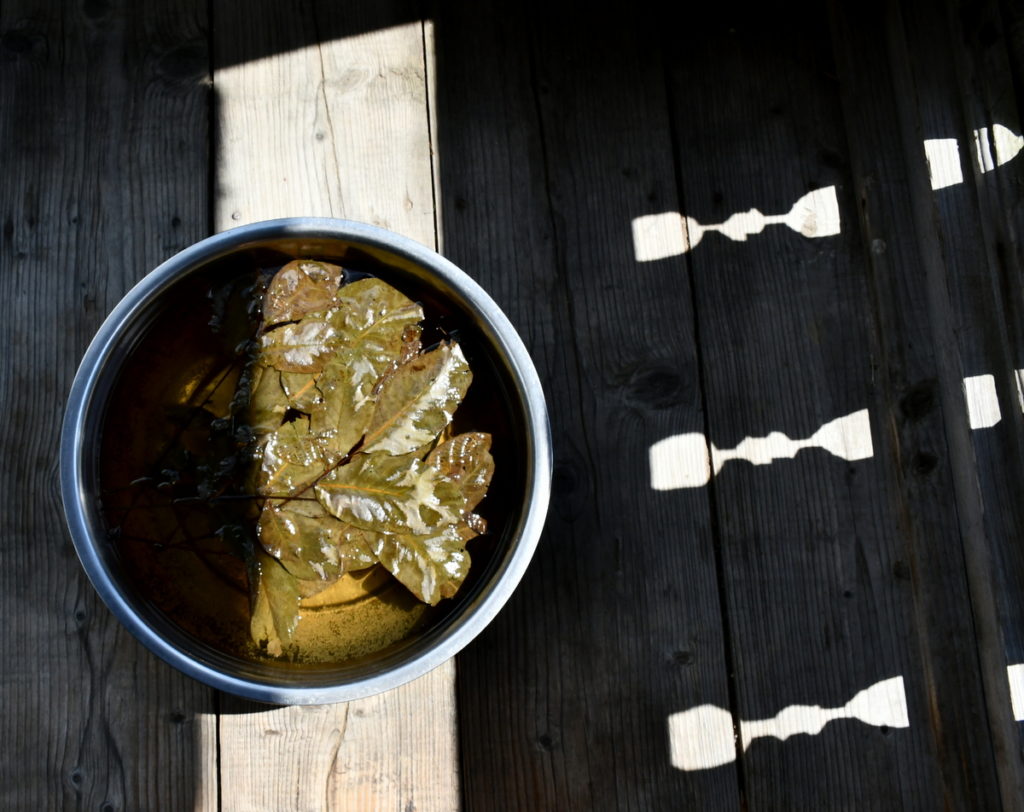
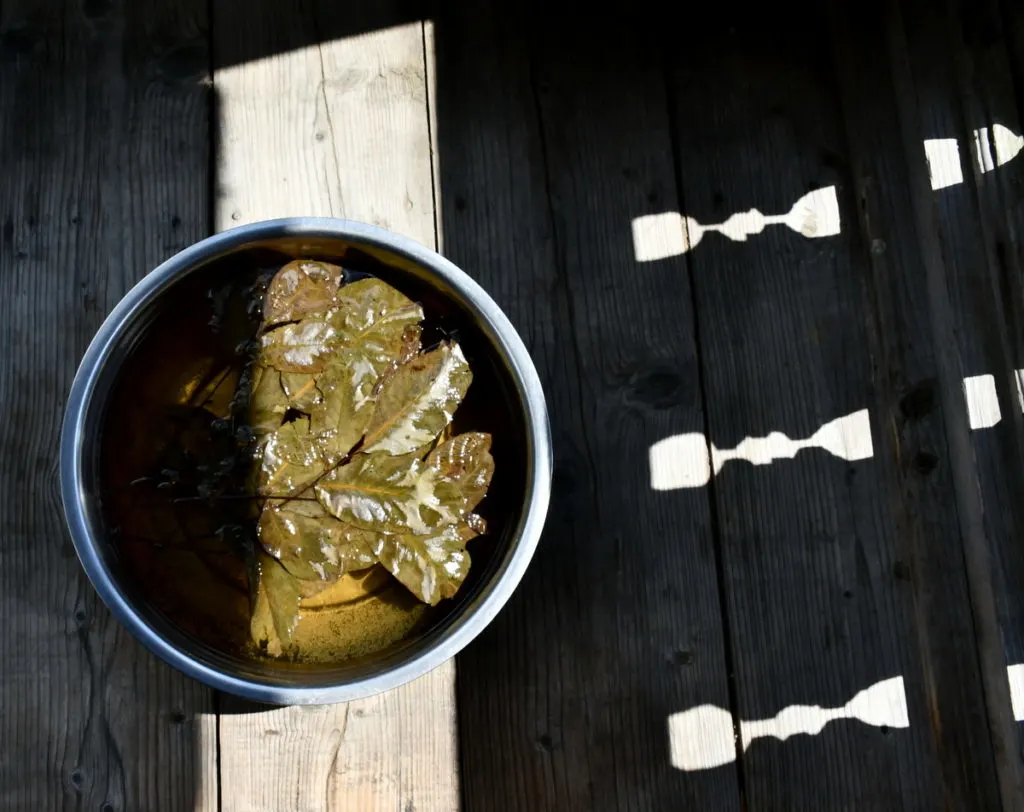
We steadily use pure rinses for our hair, preferring walnut leaves above all for one of the best ways by which whereby it smells and one of the best ways by which whereby it tightens the scalp. It’s like a spa treatment with out value in your particular particular person home.
Walnut leaves and hulls may even act as a brief lived brown hair dye.
Similar to making tea, now fill a wonderful bigger pot with way more up to date or dry leaves. Ship them to a boil and permit them to simmer for 10-Quarter-hour.
Let it come to a temperature that is skin-friendly and rinse your hair in a basin. Should you occur to wish to darken your hair, depart it on as long as attainable. There could also be not a should rinse it off.
4. Walnut Leaf Dye
Merely as chances are you’ll dye your hair, you presumably could even dye your clothes.
By means of the years, I’ve found that walnut leaves make probably probably most likely probably the most reliable brown dyes. Appropriate correct proper right here, it is completely acceptable to take advantage of the leaves of black or English walnuts.
For a barely absolutely absolutely fully totally different coloration, you presumably could even try the inexperienced hulls, or the dry brown shells.
To make the darkest, most potent dye attainable, harvest ample leaves to fill half of your dye pot. Excessive it off with water and produce to a boil, then lower to a simmer. Gently simmer over low heat for about an hour.
Let the dye sit two additional full days longer, ideally outdoor.
After 48 hours, stress the leaves, convey to a simmer as shortly as further and dip in your material or clothes. Let your garment sit all via the dye bathtub for as a lot as an hour, take away and rinse.
Don’t overlook to positioned on gloves! Or your arms shall be briefly brown too.
This dye from each walnut leaves or hulls, can be utilized to dye handwoven baskets.
5. Composting Walnut Leaves
Compost this, nonetheless not that.
All via the realm of composting, all people has an answer to all of the factors, nonetheless usually they’re unsuitable, or misinformed. Or presumably we make errors, on account of we aren’t open to new knowledge.
Whatever the case will be, walnut leaves can if truth be told be composted, due to the juglone breaks down when uncovered to water, micro organism and air (that’s compost!). In as little as two to 4 weeks the toxicity of the leaves can also be broken down.
Should you are inserting walnut wood chips on the compost, nonetheless, it will take about six months to interrupt down the juglone to protected ranges.
The scale of time it takes to compost may even rely in your methodology of composting. So, err on the side of warning and let it sit barely bit longer, significantly for lots of who intend to position your compost all via the vegetable yard.
6. Walnut Leaves as Mulch
Mulch? Are you crazy?
Appropriately, probably. We do have a no-dig yard in any case. It’s an unconventional methodology to rising meals, significantly since we not typically plant in strains.
Our methodology of mulching is to take advantage of plenty of layers. We start in fall with additional leaves from the fruit timber (pears, apples, cherries). In spring we mulch with hay which grows aplenty right correct proper right here.
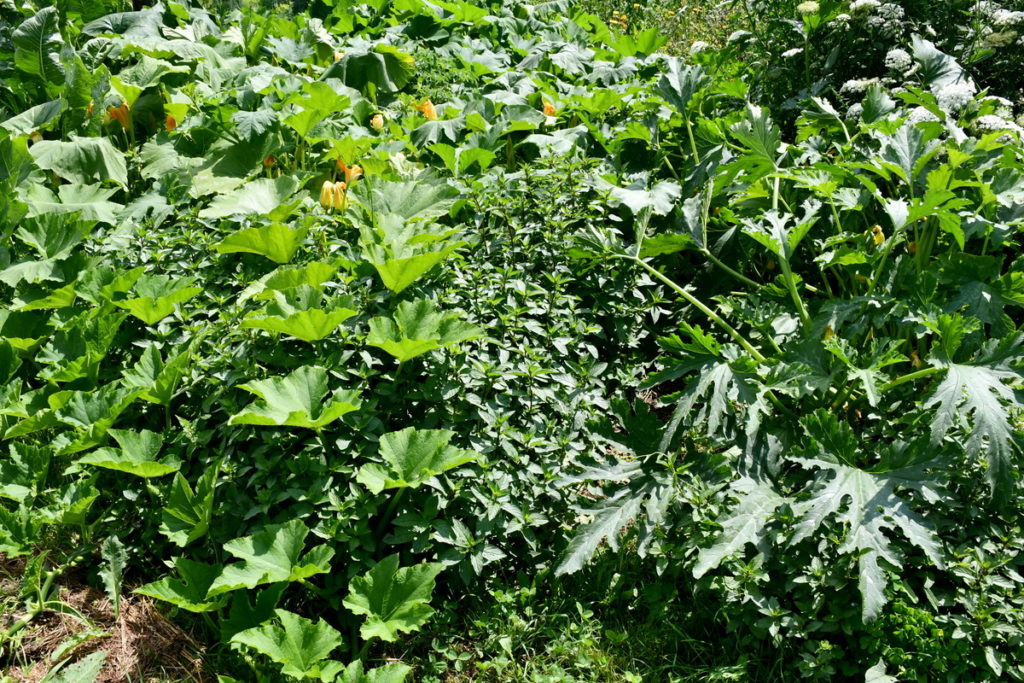
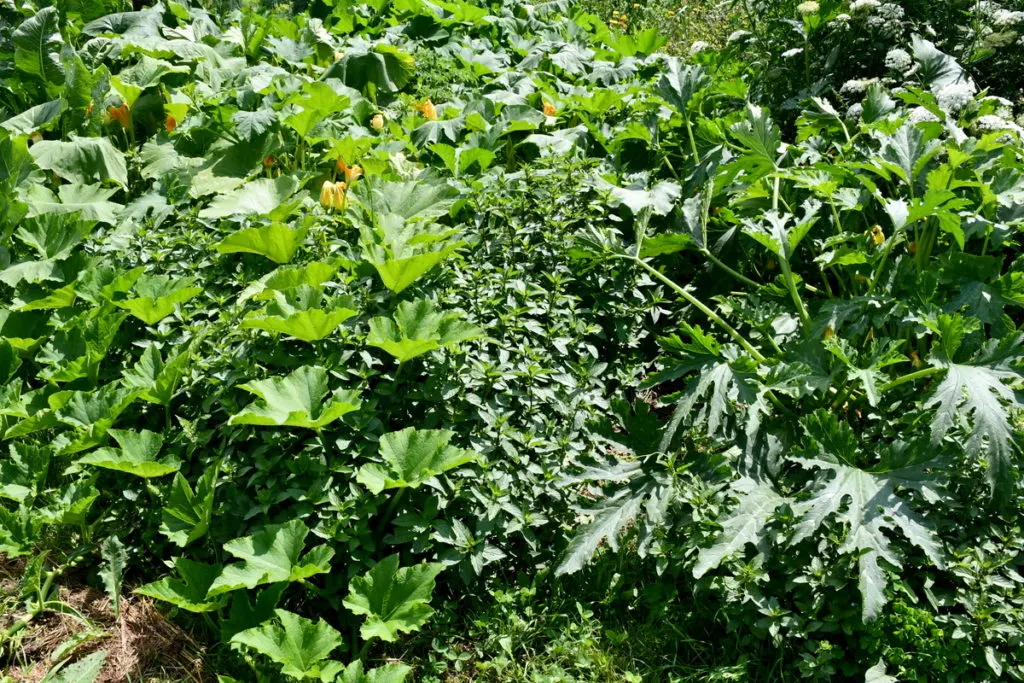
When the time arises, we moreover put fallen walnut leaves on the paths. They shortly break down and swap into part of the soil.
It isn’t instructed to take advantage of walnut leaves as mulch applicable the place you plant, nonetheless we’ve had no elements using a small amount on paths. Use them to cowl the underside the place you don’t want crops to develop.
When not sure, go for the latest composting methodology, it actually works accurately every time.
Black Walnut Ink Made From Hulls
Whenever you would have walnut timber in your yard or entry to a stand shut by, you’re going to have significantly bigger than leaves.
One amongst our favorite elements to make with the hulls is black walnut ink.
Make an infinite batch and use it for drawing, painting, lettering, journaling, writing poetry, regardless of your coronary coronary coronary coronary heart desires.
Appropriate correct proper right here’s a quick video and article regarding the applicable option to make your particular particular person black walnut ink.
Easy strategies to Purchase, Dry and Retailer Walnut Leaves
The easiest time to assemble walnut leaves is in June and July whereas the leaves are nonetheless a vibrant inexperienced.
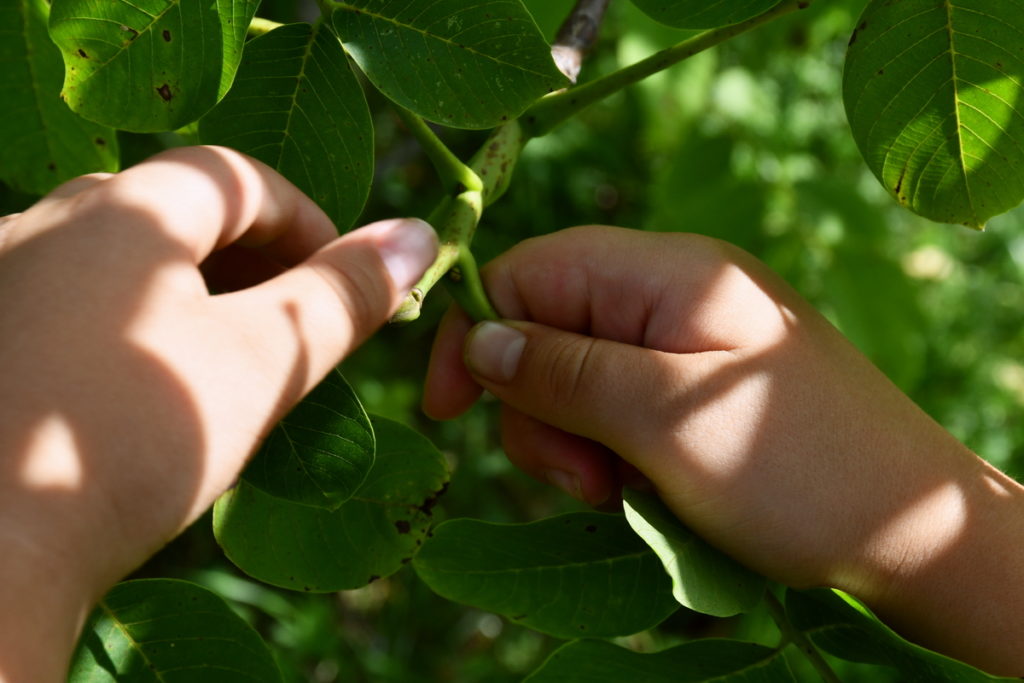
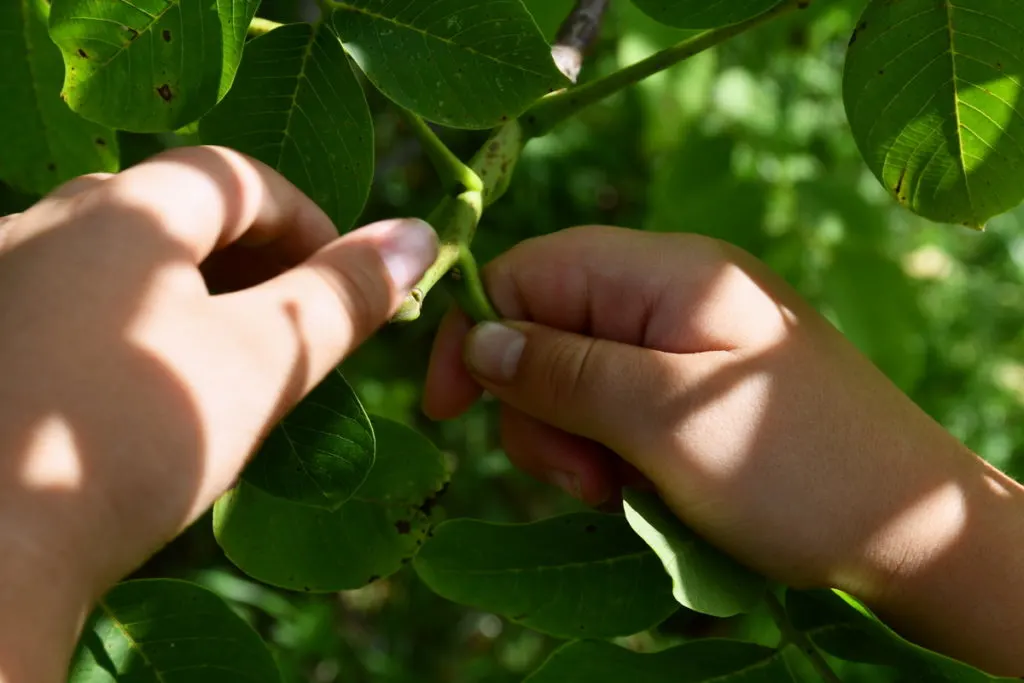
Drying walnut leaves is huge simple.
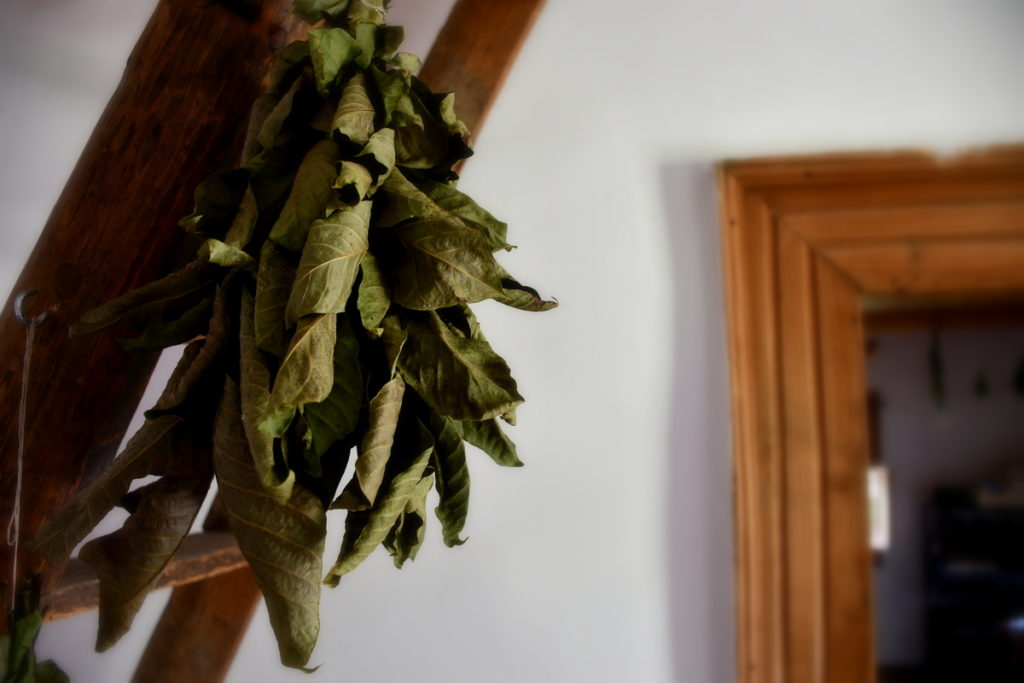
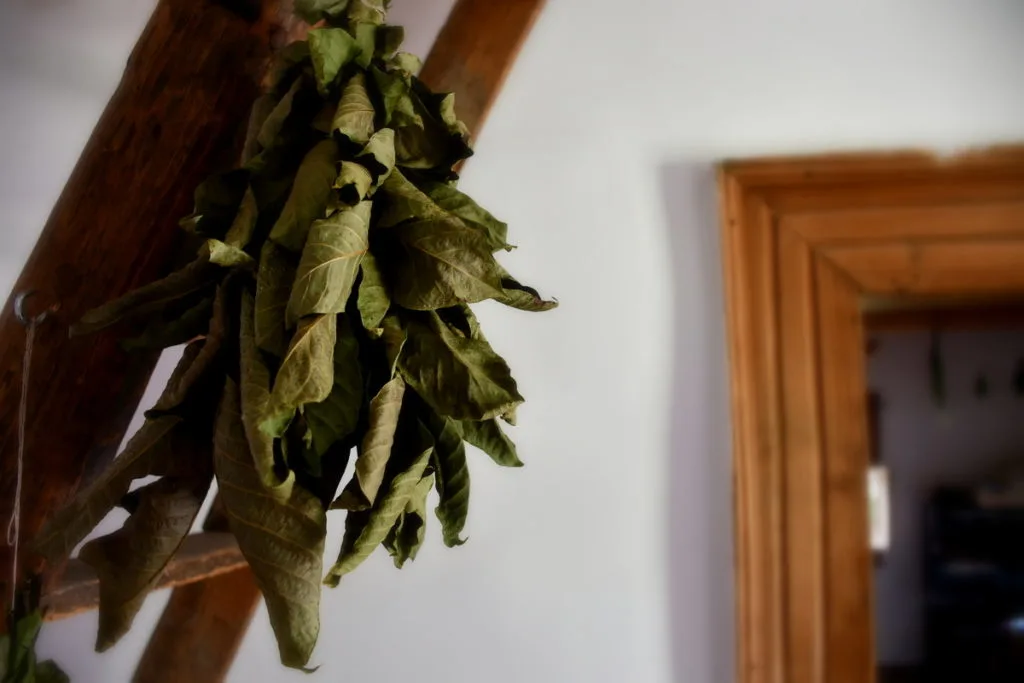
Harvest a bundle by hand, ripping them backward off the division and tie them as a lot as dry. Permit them to dangle beneath cowl for only a few week until they’re crispy and curled.
Then they’re ready for storage.
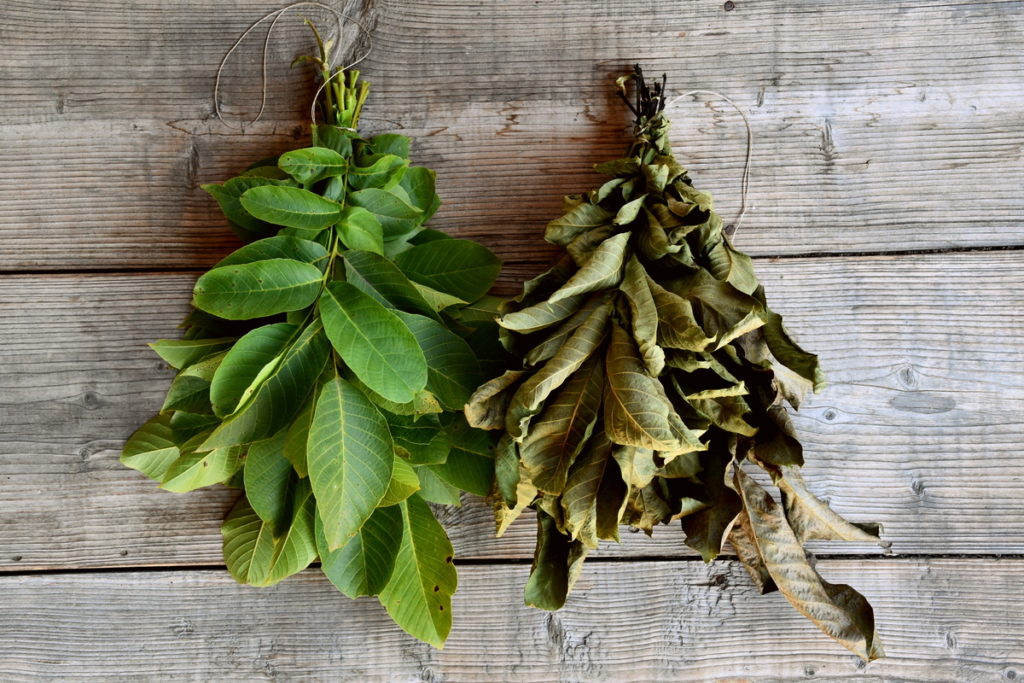
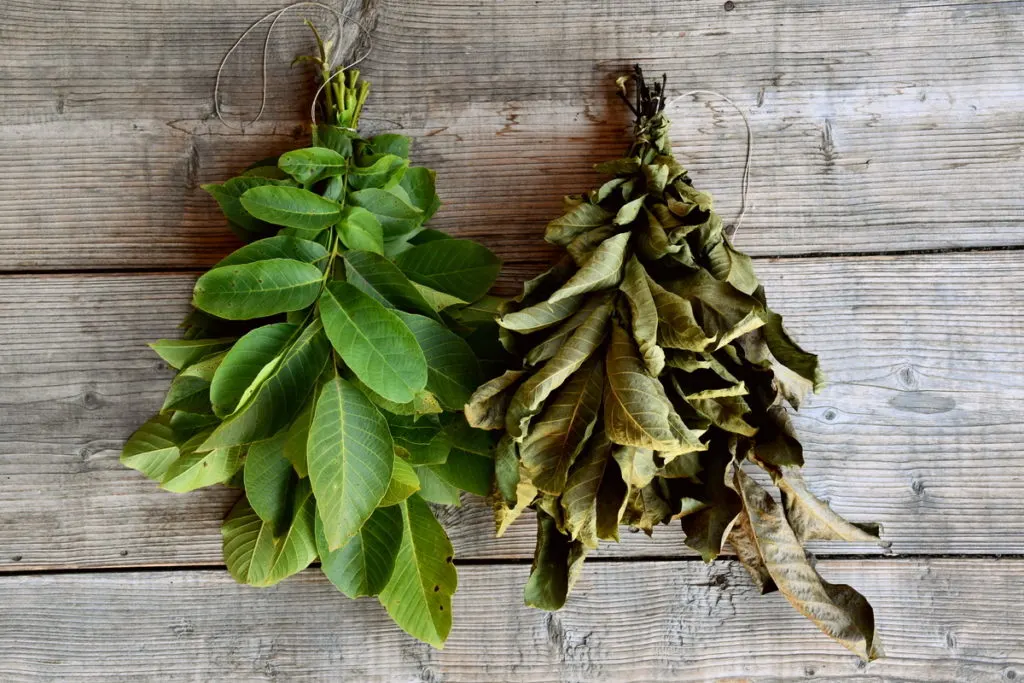
For probably probably most likely probably the most half, we retailer our walnut leaves full as hair rinses make up virtually all of their use. Retailer them in a cotton bag in your herb closet (everytime you have acquired one!), or crumble up the leaves and put them in jars to avoid dropping home. This works unbelievable in case you’re using it as tea.
Given that walnut leaves are ample yearly, we harvest anew yearly. This trend, we incessantly have the freshest present.
It is incessantly a wonderful suggestion to rotate your wild foraged herbs, making certain to have ample, nonetheless not an extreme quantity of. With experience and time, you’ll perceive how lots to assemble for the course of a yr.
Use Your Frequent Sense
You gained’t be eager to reap bushels of walnut leaves, only a few handfuls shall be ample in your non-public use. On account of they’re naturally astringent, you’d under no circumstances want to eat better than your physique wants instantly.
It’s attainable chances are you’ll choose to steer clear of using walnut leaves everytime you have acquired a nut allergy, are nursing or are pregnant. Focus on to your physician and trusted herbalist for further knowledge.
Neither walnut hulls, nor leaves, are actually useful for long-term (assume steadily) use.
Most of all, have pleasurable and don’t concern about getting your arms dirty. That’s part of having fulfilling with nature too.
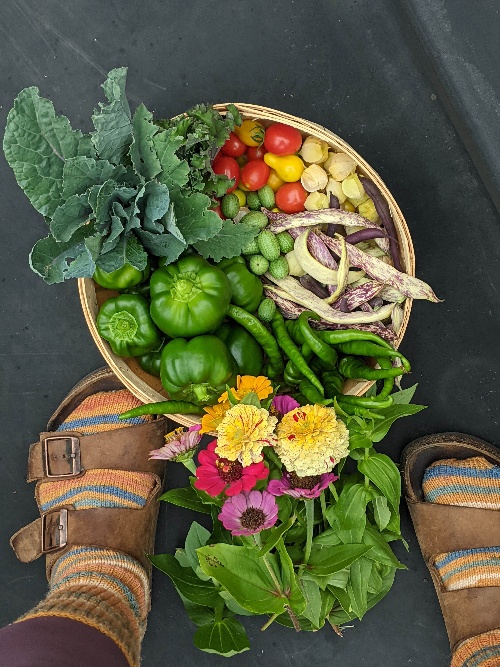
Get the well-known Rural Sprout e-newsletter delivered to your inbox.
Along with Sunday musings from our editor, Tracey, along with “What’s Up Wednesday” our roundup of what’s in season and new article updates and alerts.


